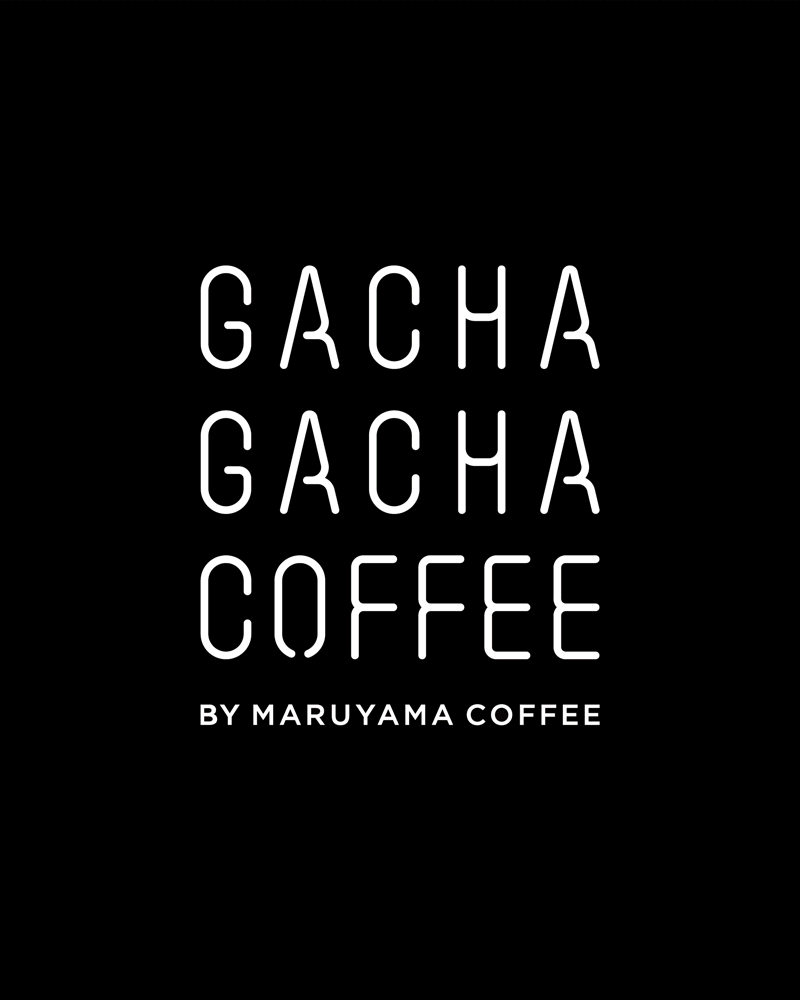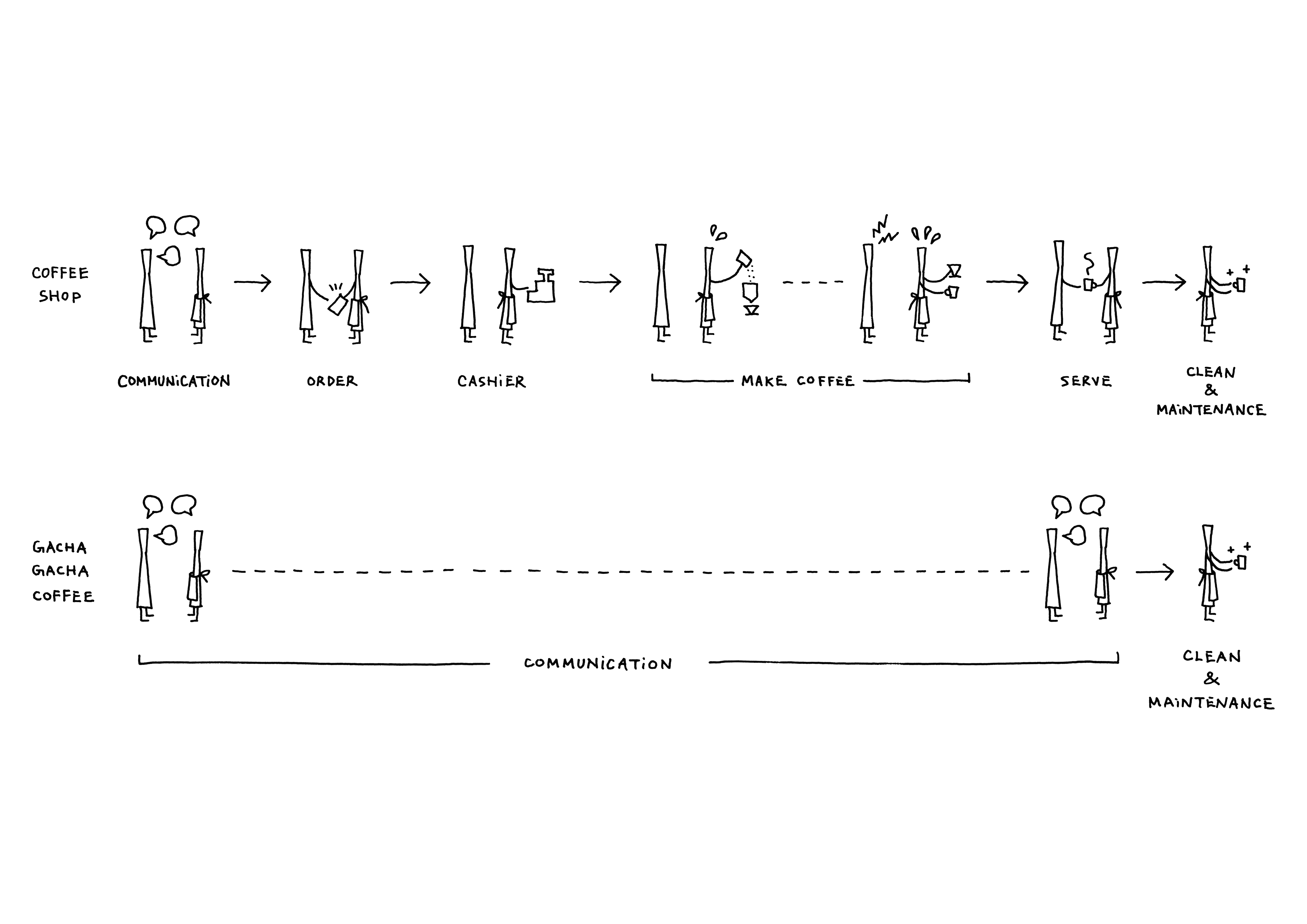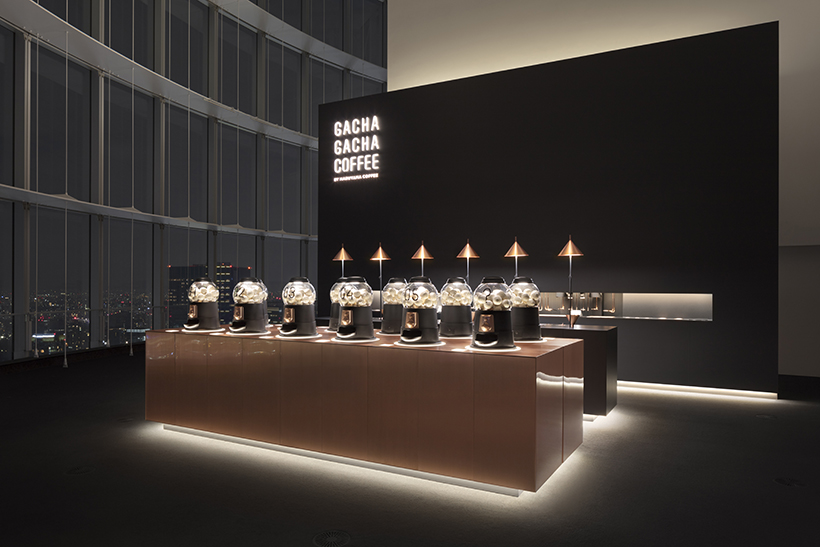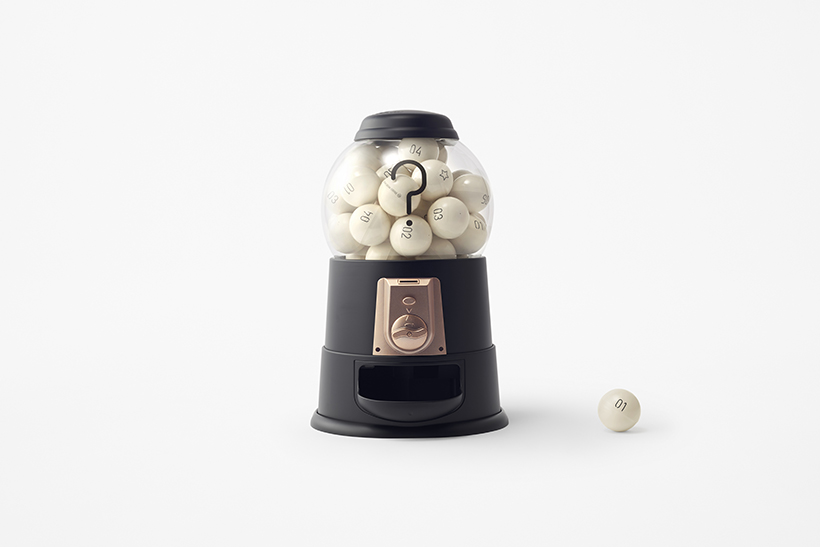GACHA GACHA COFFEE
In Japan, the rise of specialty coffee chains and third wave coffee shops as well as the spread of convenience store coffee is diversifying the coffee choices and how they are enjoyed more than ever before, making coffee an indispensable part of our lives. In the midst of this trend, many coffee shop chains and cafes are facing serious labor shortage caused by a declining birth rate. On top of the current condition of not being able to secure man power, employees are expected to have a deep understanding of coffee and possess customer service skills, in addition to having to conduct basic operations such as operating the cash register, cooking, serving and cleaning. Despite all of this, in many cases, the training time and the cost invested in personnel is not sufficient, resulting in the decline of service quality, and eventually leading to customer dissatisfaction. Although it was possible to create an unmanned store that takes full use of technology in order to solve this problem, the café was designed as a self-service type that embodies analogue elements.
Customers that enter the café space located in the observation deck of Roppongi Hills, are first greeted by the orderly lined gacha machines. Customers use these machines which are typically made for buying toys, to buy a capsule that contains coffee beans for one cup of coffee. Not only do the customers have a variety of choices to choose from, some machines contain a mix of a variety of beans, and some even have rare “secret” beans, which adds to the small excitement for the opportunity to encounter an unknown flavor. Next, the customers themselves put the beans that they purchased into the grinder, then the grinded beans fall into the dripper, and lastly, after setting the dripper and the cup on the extractor and pressing the button, the coffee is finally served.
As “Maruyama Coffee”, a popular and renowned coffee store, has selected and roasted the coffee beans, and has also set the grinders and the coffee machines, customers can enjoy the authentic taste and aroma of the “freshly ground” “freshly brewed” drip coffee to their hearts’ content. By simplifying the operation and asking the customers to take part in preparing the coffee, the role of the employees has been reduced, enabling them to spend that extra time to communicate with the customers. Another important aspect is that by having the customers participate, they were relieved from the stress often felt while waiting in line with frustration for their coffee. In other words, the intention was not to create a completely automated café, rather, it was to provide a comfortable and peaceful time for both the customers and the employees.



